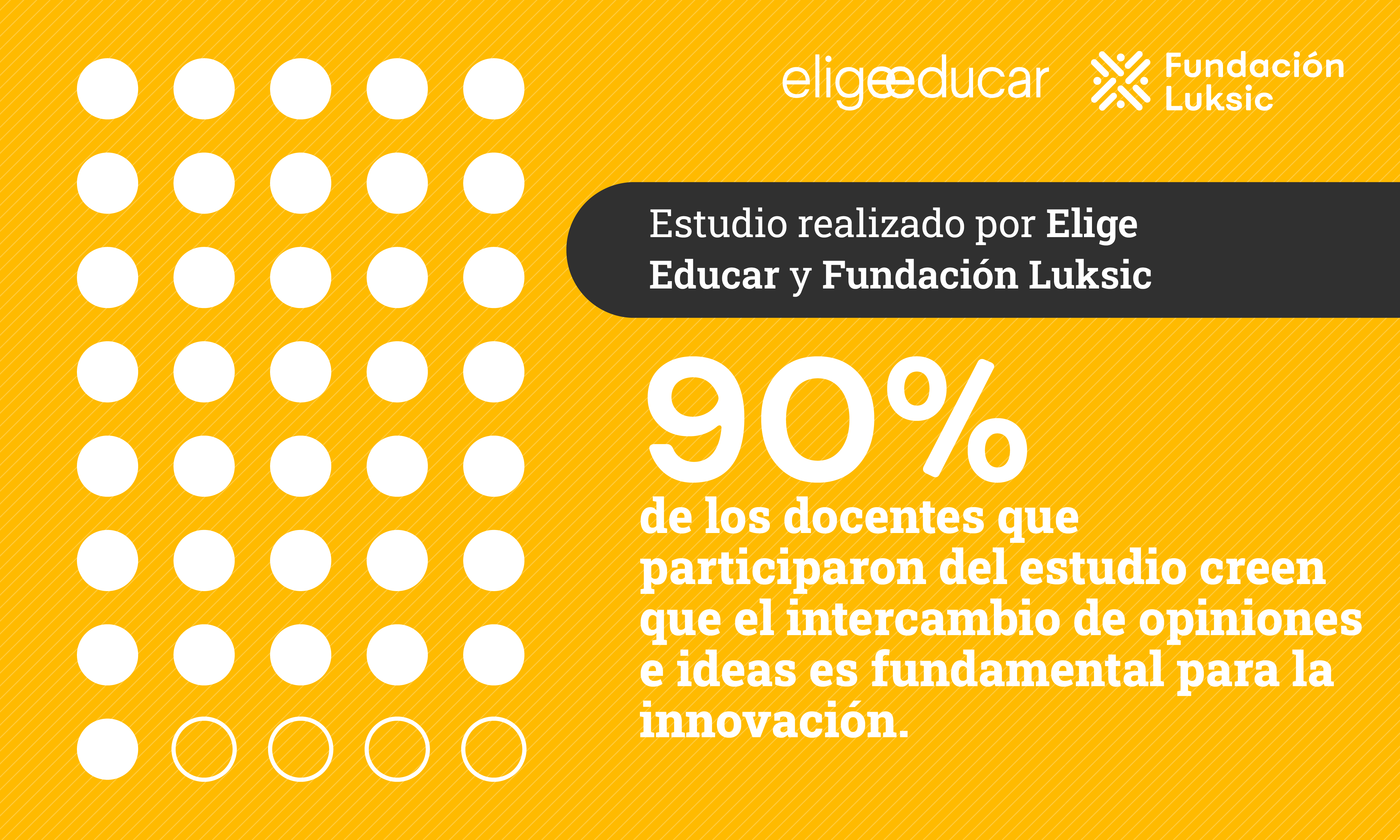In order to identify trends, difficulties and facilitators faced by teachers in implementing educational innovation methods in their classes, Elige Educar together with the Luksic Foundation conducted the study “Educational Innovation in the Classroom: Transforming Teaching and Learning for the 12th Century”, applied to more than 1,800 teachers and educators throughout Chile.
Of the total number of teachers surveyed, 44% belonged to municipal educational establishments, 44% to private subsidized establishments and the remaining 12% to private paid schools or high schools. In terms of geographic location, 66% are in the Metropolitan Region and the remaining 34% in other areas of the country.
In a particularly challenging time, marked by the Covid-19 pandemic and the increase in the use of Information and Communication Technologies (ICTs), innovating has been almost a duty for teachers. However, according to the study, 99% of teachers agree that, for this innovation process to be successful, a strong link with the educational community and the school environment is required. In addition, 98% affirmed that innovation requires initiative on the part of teachers, but also support from managers.
Regarding the application of innovative educational techniques, 94% of teachers say that it is part of the innovation processes in their school and 74% of them say they have received training in this area. As the main facilitators of innovation in the classroom, a large number of teachers emphasize collaborative work with their peers. In fact, 90% share that the exchange of opinions and ideas is fundamental to achieve this objective.
“In a context of changes typical of the 21st century, it is essential to promote pedagogical innovation and for that it is important to understand which are the factors that favor this necessary innovation. For this reason, we conducted this study to shed light on this issue, with the aim of – on the one hand – guiding educational establishments, as well as public policies so that, in a comprehensive manner, we can promote an environment that favors teaching innovation, in order to improve the educational experience of students”, explained the Executive Director of Elige Educar, Joaquín Walker.
Motivations to innovate
Another of the objectives of the study was to find out the motivations of teachers to start applying educational innovations. It was precisely from this question that the following results were obtained: 48% of teachers began to innovate to improve the learning results of their students; 41% did so because of the need to generate changes in society and 35% stated that their motivations were the social crisis and the pandemic.
Regarding these results, José Gutiérrez, director of the Luksic Foundation’s Education Laboratory, pointed out that “the world of education has been pushing innovation for years as a way of responding to the multiple requirements that have been emerging. We always say that it is important, we even promote policies -at a national or establishment level- to make it happen, and we assume some results linked to it. But how it happened, from the teachers’ perspective, was in a black box where we had not entered. Today we have excellent quality information to think realistically about how to push for change from the teachers’ perspective, not from a general definition but from the perspective of multiple actors developing their work”.
Finally, when asked about the limitations faced by teachers to innovate, 42% responded that it was due to lack of time to carry out the required tasks, while 33% pointed to the lack of economic support to carry out this type of initiative.
Review more findings of the study here

